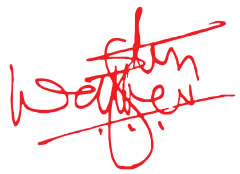Foreword by Hon. Mr. Justice Walter S. N. Onnoghen, GCON, The Honourable Chief Justice of Nigeria November, 2018
There is no-gainsaying that technology has ushered in a paradigm shift in the way we think and about how legal meanings are disseminated and construed. Even our most cherished existence and contacts with reality are now technologically mediated and constructed. Within a span of two decades, the practice of discovery of writings, recordings, photographs, and other non-testimonial evidence in both criminal and civil cases in our courts has transformed from one that was based almost entirely on the manual retrieval, review, and production of tangible documents by counsel to one that is almost entirely dependent on accessing, searching, reviewing, and producing digital or computer-generated information.
The “digital explosion” has required a more fundamental change on how counsel and judges must think about digital evidence and eDiscovery in legal proceedings. While the digital natives of the legal profession typically have greater knowledge and less phobia regarding what is needed to engage in what has come to be known as “e-discovery,” there are many counsel and judges of our time who look at the digital process with concern, if not fear and loathing.
Part of the problem lies with not knowing where to begin to develop the knowledge and experience needed to survive in the daunting new world of digital evidence and e-discovery. Though their technical proficiency has not matched the pace of the increased role that technology plays in an interdisciplinary global environment, the bar and the bench cannot abdicate their responsibilities due to ignorance of the current technology as they impact on the modern law practice. The bar and the bench must remain accountable for rendering competent legal services to the client and the effective dispensation of justice respectively.
The book, Digital Evidence & eDiscovery Law Practice in Nigeria is a timely intervention to address this challenge. The author has opined, “as lawyers and judges, we cannot walk away from the overwhelming majority of the evidence that may be lurking in the computer hard drives, networks and other devices. Not having digital discovery skills is a ticking time bomb in the 21st century law practice. A pervasive lack of knowledge about electronic data, coupled with experience grounded exclusively on paper discovery, makes it hard for lawyers and judges to meet the challenges of digital data discovery. We must, therefore, learn to master electronic discovery and at its extreme, exploit its powerful sub-discipline, digital forensics”. I agree no less with this postulation. Counsel and the court must therefore stay abreast of changes in the law and its practice and understand the benefits and risks associated with relevant technology; and in addition to their legal expertise, must also have enough knowledge in different areas of technology and forensics to enable them identify issues, understand concepts, contribute to teams and connect ideas across disciplines. Above all, every lawyer and the court need basic knowledge of how the Internet works; how computer systems, tools and storage functionality are preserved; how digital forensic investigations are conducted; understand forensic expert evidence and a host of other electronic dynamics relevant to the 21st century litigation.
One of the compelling points of this book is that the author writes from the vantage point of law and forensics, having been dual qualified. The book, written in a conversational style, while keeping the commentary broad and all inclusive, is divided into five parts, to wit: digital evidence; eDiscovery law practice; digital forensic investigation, prosecution and defence; expert witness and forensic evidence and finally, precedents and landmark cases from foreign jurisdictions. Sprinkled throughout the book are very helpful references to cases, secondary sources, and other materials fully automated, thereby giving the book depth beyond its relative brevity. A quick look at the table of contents reveals an impressive inventory of the most important digital evidence and e-discovery topics of the day. Like a well-designed website, it is informative, interesting and easy to navigate, providing up-to-date practical information that would impact on the lawyers’ efficiency to effectively represent clients in a world meshed in digital technology, eDiscovery processes and the basic understanding of forensic expert evidence.
Emboldened by the quality of scholarship demonstrated, and the convergence of law and forensic technology brought into focus by the author, I commend this book as a critical resource to the bar and the bench respectively, as they confront eDiscovery and evidentiary issues posed by electronically stored data in the course of proceedings in our courts.

Hon. Mr. Justice Walter S. N. Onnoghen, GCON
The Honourable Chief Justice of Nigeria
November, 2018
